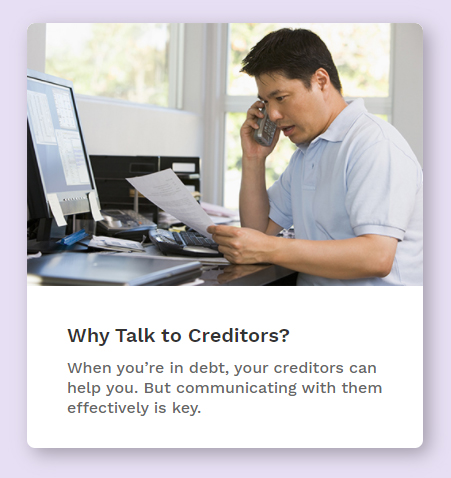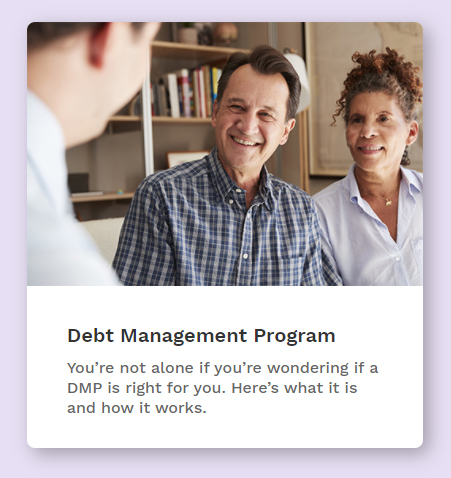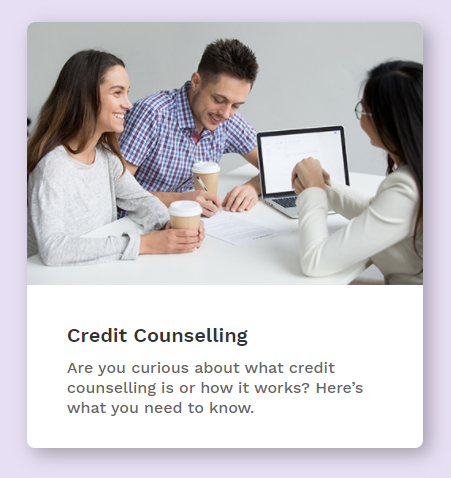Great Insight Into How To Pay Off Debt
by Stacy Yanchuk Oleksy
I consistently get asked when I’m in the community teaching or talking about financial wellness, how to pay off debt. It’s a great question but I think before we look at strategies, we should consider some things first.
Personal Finances are Like an Iceberg
 Anyone who knows me or has me speak knows that I see money and personal finances like an iceberg. The tip of the iceberg is what everyone else can see. It’s how I spend my money. Personally, I love books and music. I have since I started earning my own money as a teen, working at KFC! But what most people don’t see is what’s below the surface of my finances. They don’t know my values and beliefs, my history with money, my relationship with my husband and our finances, my savings, my debts, and my hopes and dreams. And that’s okay – they don’t need to see them but I need to be intimately aware of them if I want to make any changes in my financial situation, especially when it comes to paying off debt.
Anyone who knows me or has me speak knows that I see money and personal finances like an iceberg. The tip of the iceberg is what everyone else can see. It’s how I spend my money. Personally, I love books and music. I have since I started earning my own money as a teen, working at KFC! But what most people don’t see is what’s below the surface of my finances. They don’t know my values and beliefs, my history with money, my relationship with my husband and our finances, my savings, my debts, and my hopes and dreams. And that’s okay – they don’t need to see them but I need to be intimately aware of them if I want to make any changes in my financial situation, especially when it comes to paying off debt.
Debt is a symptom. It is not the cause of our problems. Now don’t get me wrong, debt can create a whole host of problems, and not all of them financial. It can ruin our sleep because what better time to worry about money than between 11pm and 2am? You can’t call anyone. You can’t get help. And so you stew and worry. Debt can impact our health by exacerbating already existing issues like anxiety, depression, headaches, backaches, stomach problems, etc. (Financial Education in the Workplace Survey, 2011). And it can wreak havoc in our relationships because nothing says love like a good money fight (insert sarcastic voice here!).
First Ask Yourself Some Important Questions
To pay debt off, let’s dig a little deeper, below the surface of who we owe, how much we owe, and what our interest rates are. Let’s take a deep breath, put our courageous pants on and explore. Some questions we can ask ourselves include:
- How do I feel about this debt? Am I feeling overwhelmed, discouraged, scared, stressed, embarrassed, and/or ashamed? While these are strong emotions, it’s okay. Just breathe through them. Emotions won’t break us. And if you need to have a cry, that’s okay too. Grab the tissue and have a good cry. And when you’re ready, go to the next question.
- How did I get into debt? This is not about judgment, at all. This is about looking for patterns and causes. Ask yourself the hard questions because the truth will open up answers for you. Perhaps my debt is from when I was in school. Perhaps I went through an expensive and painful divorce. Perhaps I started a business and supplemented my income with credit. Perhaps I spent money unconsciously because it made me feel a certain way. Perhaps I wanted my family/friends/colleagues to think that I had it together. Perhaps I couldn’t say no to my adult child who is having difficulty standing on her own. Perhaps I lost my job or got hurt or sick. And maybe I just don’t know. It happened over the course of years and there’s no defining reason.
- What does money mean to me? Now we’re getting to the fun part! Think about what money means to you – is it freedom? Safety and security? Choices? Charity? Comfort? A good retirement? Legacy for my kids? Anything else? Our answers tell us what our money value(s) is. And when we know this, we can discover our “why”. Simon Sinek, in his book, Start With Why, talks about understanding the “why” of things. Because when you know “why,” then you can move into “how” and “what” more easily. When you understand your core values, it easier to pay off debt because you know exactly why you’re doing it. For example, I want to be debt-free because money means safety and independence. When I have debt, I feel unsafe and stuck. And by paying off my debt, I can feel safe. Furthermore, I can feel as though I can walk away from anything that is no longer serving me (i.e. a job, a relationship, a friendship, a home, etc.).
- On a scale of 1 to 10, how important is it to me to be debt-free? 1 being not important at all, 10 being extremely important. If I’m sitting at a 6, I need to ask myself why isn’t it a 10? Am I scared? Overwhelmed? Worried I’ll fail? The real question is – what do I need to do to get my commitment to a 10? Do I need to let go of my fear? Do I need to forgive someone or myself? Do I need to get more information? Do I need to get some help?
Ways to Pay Off Debt
Now that you’ve answered some really important questions, give yourself a metaphorical pat on the back. Those weren’t easy questions but you did it!! Nice work! And now, let’s look at some options on how to pay off debt. We’ll look at various options, moving from the least amount of external intervention to most.
There are many ways to pay debt off on your own. You could:
- Increase your income (part-time job, contract, collecting bottles, babysitting, snow removal, etc.) and use that extra money to pay off debt;
- Decrease your expenses – find out where your money is going by tracking and reduce unnecessary expenses, putting that extra money towards debt;
- Increase your income and decrease your expenses – the combination will help you pay down debt quicker;
- Create a debt reduction plan using either the snowball or avalanche method;
- Sell stuff – do you have stuff lingering in your possession that are only taking up space and collecting dust (i.e. jewelry, art, antiques, vehicles, clothes, etc.)?
- Downsize – is your home or vehicle too much for you? Could you downsize and use the proceeds and extra savings to pay off debt?
- Conventional finances – have you chatted with your financial institution about your options? This could look like a consolidation loan or refinancing your mortgage. But remember, if you do this, create a plan to pay this debt off; or
- Help from family and/or friends – do you have anyone in your life that is in a position to help you? Before you ask, make sure you have a plan to pay them back so the relationship isn’t strained over money.
Structured Debt Help – Debt Management Program or Debt Settlement
If none of these options work for you, you could consider getting more structured help. Two options available to you include:
 A Debt Management Program (DMP) – it allows you to restructure your unsecured debts into 1 simple monthly payment. You pay back 100% of the principle owing and your creditors will either eliminate or greatly reduce your interest rates so you can get out of debt in a reasonable amount of time. This option isn’t for everyone. While there’s no specific “qualification” or “eligibility” criteria, it does require that you are able to manage a monthly payment while paying for all of your other living expenses. And it requires you to live without credit while you’re on the program. While this can be worrisome, especially if you’ve been depending on credit to manage your expenses, just breath, we’ll show you how to do it and be successful. Furthermore, we’ll give you a variety of options to pay for your expenses without having to borrow money – and we’ll help you rebuild your credit once you’ve successfully completed the program; and
A Debt Management Program (DMP) – it allows you to restructure your unsecured debts into 1 simple monthly payment. You pay back 100% of the principle owing and your creditors will either eliminate or greatly reduce your interest rates so you can get out of debt in a reasonable amount of time. This option isn’t for everyone. While there’s no specific “qualification” or “eligibility” criteria, it does require that you are able to manage a monthly payment while paying for all of your other living expenses. And it requires you to live without credit while you’re on the program. While this can be worrisome, especially if you’ve been depending on credit to manage your expenses, just breath, we’ll show you how to do it and be successful. Furthermore, we’ll give you a variety of options to pay for your expenses without having to borrow money – and we’ll help you rebuild your credit once you’ve successfully completed the program; and- A Debt Settlement – it’s an option for a small portion of consumers because it requires having a lump sum of cash ready to offer your creditors. You can do this yourself, and if your creditor(s) accepts your offer, you get it in writing, give them the funds, and the debt is done. However, it will impact your credit as an R9. The other option is to have a non-profit credit counselling agency like the Credit Counselling Society do it for you. We put together a proposal and negotiate with your creditors. If they accept, we disburse your funds to them on your behalf. And we charge a small fee that’s included within your lump sum, not in addition to it. If your creditors don’t accept the settlement offer, all funds are returned to you and no fee is taken. And this will impact your credit as an R7 which is better than an R9.
Legal Options – Consumer Proposal or Bankruptcy
If these options don’t work for you, you may have to consider a few legal options including:
- A Consumer Proposal – it’s a legal process conducted by a bankruptcy trustee where you pay a portion of your debt back by making monthly payments typically for 3-5 years. And before you think you’ve hit the debt repayment jackpot, there are some things to consider including the cost which is around $1,500-$1,800 and this information will remain on public record forever. This means that anyone can go online, pay a small fee, and see if you’ve ever entered into this process; and finally
- Bankruptcy – it’s a procedure under the Bankruptcy and Insolvency Act, which provides financial relief to individuals who are insolvent. The process is administered by a Trustee and halts any legal actions preventing any unfair advantage of one creditor over another. However, you need to know that it costs money to go bankrupt and not everyone can. Many consumers make too much money and/or have too many assets. Furthermore, like a consumer proposal, this information is kept on public records forever.
How To Pay Off Debt and Do It Right
As you can see, there are quite a few options on how to pay off debt. Three important things to remember:
- Understand why you got into debt and why you want to be debt-free;
- Know that it’s going to take time and hard work to pay everything off. You didn’t get into debt overnight and unless you win the lotto or suddenly get an inheritance, it’ll take time; and
- Get help if you’re not sure where to turn. The smartest and most successful people don’t know how to do everything themselves, they surround themselves with experts who do and they ask for help.
And as you move through your financial journey, imagine what it’s going to feel like to be debt-free. Imagine what you’re going to be able to do with the money that is going towards debt payments right now. Imagine that freedom!
Last Updated on January 10, 2025






